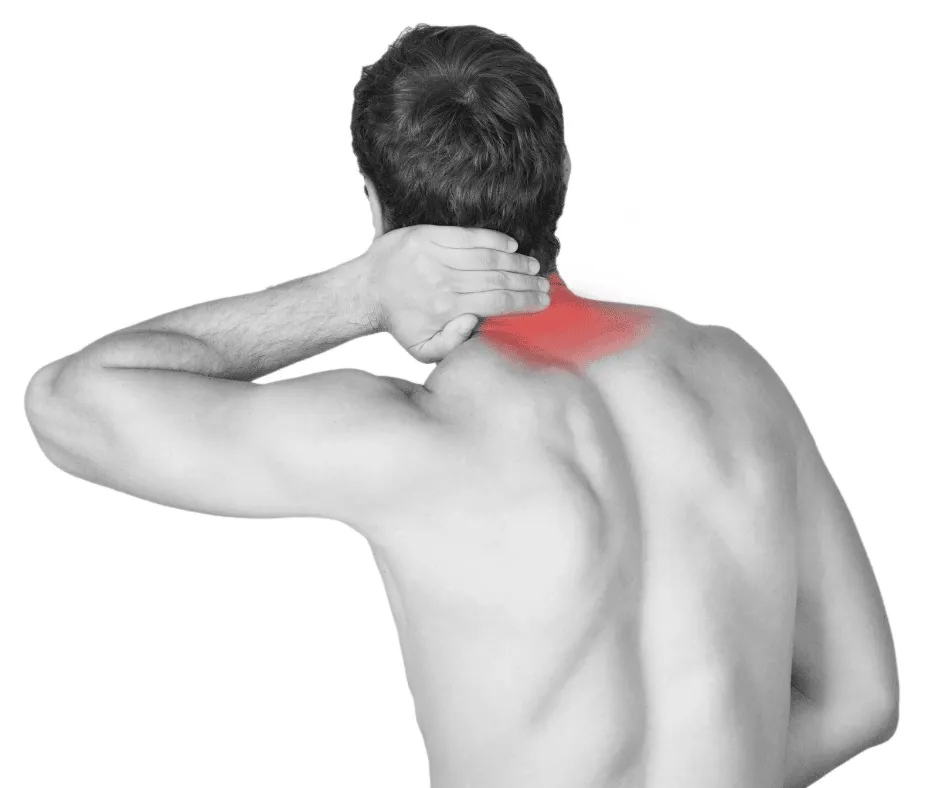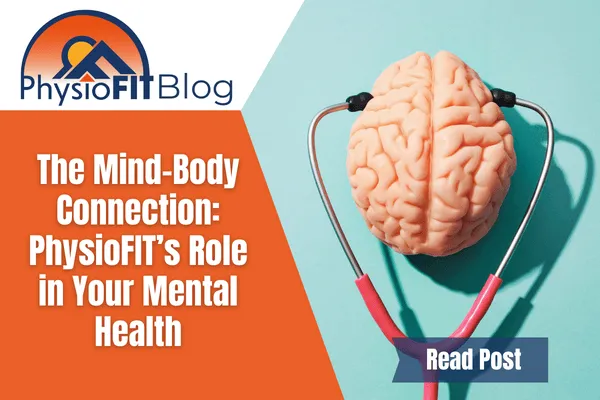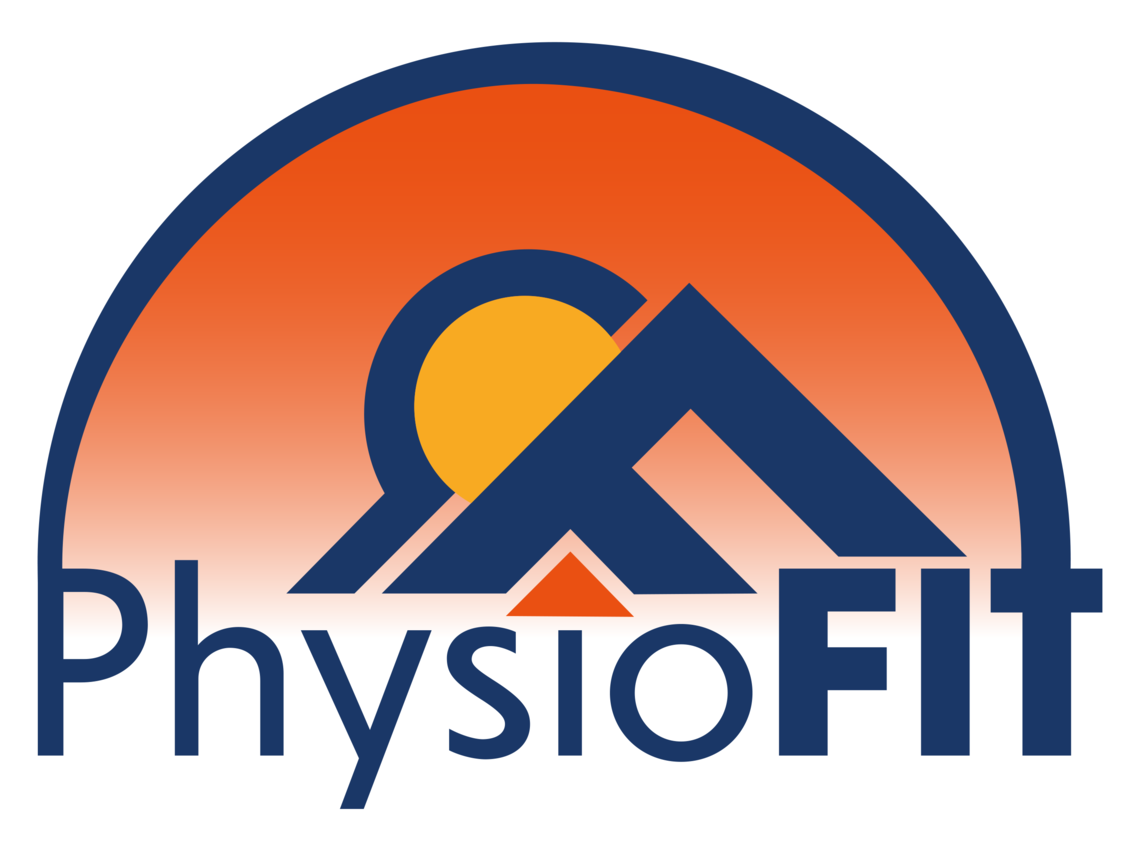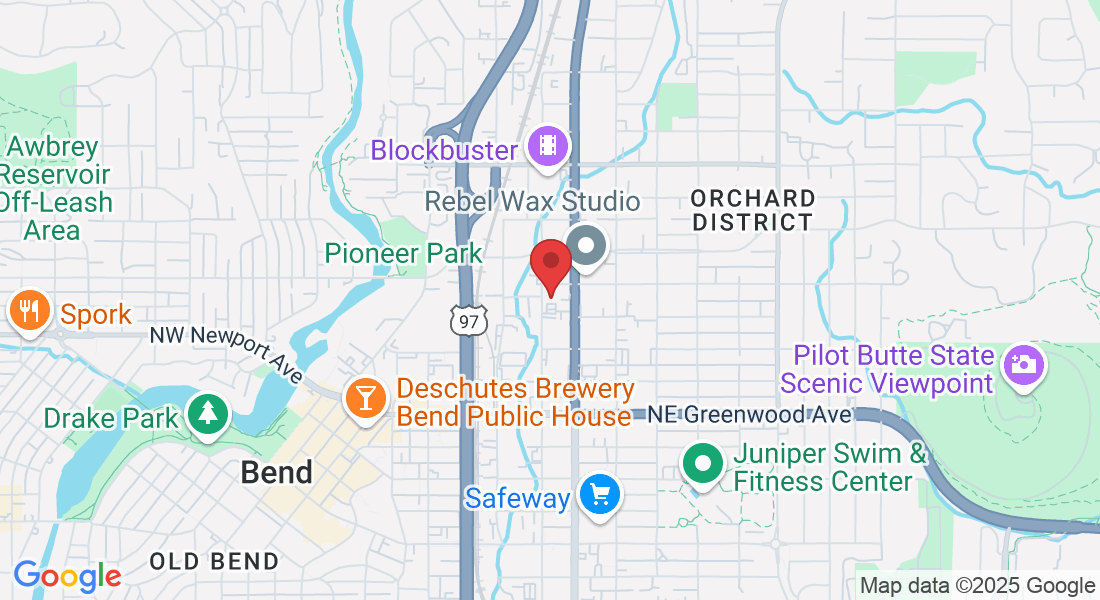Neck Pain Relief
Living Life Shouldn't Be Such a Pain in the Neck
Are you one among the millions experiencing "neck pain" and seeking relief? Neck pain is an everyday battle for roughly 10-20% of U.S. adults, leading to work absences, diminished life quality, and restricted physical activities. Consider us your guide, providing essential knowledge about neck pain and illustrating how we can assist you in restoring your well-being.
At PhysioFit, we are committed to delivering well-rounded neck pain treatments, expertly designed to align with every patient's specific condition and requirements. Our practice is rooted in a science-based, exercise-centric methodology of physical therapy, centered around individualized care plans for pain relief. Our vision transcends the mere alleviation of your neck discomfort; we strive to enhance your holistic health, diminish the chance of chronic or recurrent pain, and expedite your return to your routine activities.
What You Should Know
The most frequent injury resulting from car accidents is neck pain, accounting for nearly half, or 49%, of all vehicular injury cases.
Persistent neck pain may cause an array of complications, including depression, tension in relationships, anxiety, issues at work, hindrance in day-to-day tasks, and excessive tiredness.
Neck discomfort ranks third as a source of chronic pain.
A proper diagnosis of a neck problem involves a thorough evaluation from a professional.

The Most Common Causes of Neck Pain
Neck pain, a common complaint that can arise from various sources, often disturbs the delicate balance of daily life. Whether it's the natural aging process, physical strain, mental stress, traumatic injury, abnormal growths, or an underlying health condition, the origin of neck pain can be multifaceted. Understanding these potential causes is a crucial step towards effective treatment and relief.
Neck discomfort can be attributed to several factors:
Age-related Deterioration: Aging can lead to natural wear and tear of the cervical spine, leading to degenerative conditions like osteoarthritis or spinal stenosis, which can provoke neck pain. Persistent stress and repeated movements can weaken spinal disks, potentially causing a herniated disk or a pinched nerve.
Physical Exertion: Repetitive or strenuous activities can overstrain neck muscles, resulting in stiffness and pain. Factors like poor posture, weak abdominal muscles, and excess body weight can misalign the spine, contributing to neck discomfort. Long hours spent in front of a computer, straining the neck, is a common contributor to neck pain.
Psychological Stress: Stress-induced muscle tightening can lead to neck stiffness and pain. Many individuals may unconsciously tense their neck muscles during periods of stress or agitation, only realizing it when the neck begins to hurt.
Injury: Trauma can damage muscles, ligaments, disks, vertebral joints, and nerve roots in the spinal cord, causing neck pain. Whiplash, a common neck injury resulting from car accidents, often leads to neck discomfort.
Abnormal Growths: Tumors, cysts, and bone spurs can exert pressure on neck nerves, inducing pain.
Underlying Health Conditions: Certain health conditions, including meningitis, rheumatoid arthritis, and cancer, may present neck pain as a symptom.
If any of this information resonates with your current situation, we urge you to schedule an appointment with us immediately. Don't let hip pain diminish your life quality - allow us to help you embark on the path to relief today.
Strategies for Negating Neck Pain
Strategies can be implemented to mitigate neck discomfort related to muscle strain or tension. They are as follows:
Adopt Healthy Posture Habits: Arrange your devices such as computers and phones to prevent neck strain or slouching while using them. Ensure your shoulders are aligned, your back is straight while seated, and your neck isn't strained. Fine-tune your car seats for proper posture during transit.
Optimize Your Sleeping Position: Retain good posture even during sleep. Use a pillow for head support to align your head and neck with your body if you sleep on your side or back. For back sleepers, consider placing a pillow under your knees to lessen lower back pressure. Avoid stomach sleeping with a turned head.
Stay Mobile: Utilize exercises meant for neck pain relief to also prevent it. If your job requires prolonged sitting, incorporate occasional breaks for stretching and mobilizing, including neck muscles.
Avoid Shoulder-Borne Heavy Loads: Refrain from carrying substantial weights like book bags or suitcases on your shoulder. Opt for wheeled luggage or bags instead.
Strengthen Your Upper Back Extensor Muscles: Age-related weakening of the upper back is normal, causing the shoulders to stoop and the head to tilt forward. This posture puts extra strain on your neck and upper back.

Common Symptoms of Neck Pain
Experiencing headaches
Sensation of numbness or a tingling feeling, akin to 'pins and needles', in your shoulders or arms.
Inability to rotate the neck or incline the head
Rigidity in the neck, shoulder, and upper back regions
A radiating pain extending from the neck down to the shoulders or arms
An intense sensation of stabbing or burning
A continuous, nagging discomfort
Remember, if you resonate with any of the symptoms or conditions mentioned, we highly recommend making an appointment with us for a thorough evaluation and personalized treatment plan.
Please Note: The information provided on our website is intended for general education and is not a substitute for professional medical advice. Each individual's situation and body is different. Therefore, what may work for one person may not work for another. We care about your well-being and advise you to reach out to us to discuss your specific needs before implementing any advice from our website.
Your Source for All Things Physical Therapy in Bend Oregon
The PhysioBlog

The Mind-Body Connection: PhysioFIT’s Role in Your Mental Health
Please Note: The information provided on our website is intended for general education and is not a substitute for professional medical advice. Each individual's situation and body are different. Therefore, what may work for one person may not work for another. We care about your well-being and advise you to reach out to us to discuss your specific needs before implementing any advice from our website. If you’d like to explore this more or would like to schedule a time with a physical therapist in Bend Oregon, contact us at PhysioFITBend.com
Key Takeaways:
Physical therapy plays a significant role in improving mental health by addressing both the physical and psychological aspects of a person's well-being. Through various therapeutic techniques and exercises, physical therapy can help alleviate symptoms of anxiety, depression, and stress, promoting overall mental wellness.
The mind-body connection is a crucial aspect of understanding the interplay between our physical and mental health. Physical therapy focuses on strengthening the body and improving mobility, which in turn positively impacts an individual's mood, self-esteem, and cognitive abilities.
Physical therapy can provide a holistic approach to mental health by incorporating relaxation techniques, mindfulness exercises, and stress management strategies. By addressing both the physical and emotional factors that contribute to mental well-being, physical therapy can enhance the overall quality of life for individuals.
Understanding the Mind-Body Connection
Understanding the Mind-Body Connection is crucial for maintaining good mental health. The interplay between our thoughts, emotions, and physical well-being is complex and interconnected. Recognizing this relationship can help improve overall wellness.
As a leading provider in the field, PhysioFIT offers valuable insights into understanding the Mind-Body Connection. Our expertise and guidance can assist individuals in recognizing the impact of their thoughts and emotions on their physical health. By addressing and improving this connection, individuals can experience enhanced mental and emotional well-being.
Furthermore, we offer unique approaches that delve into the Mind-Body Connection on a deeper level. Our comprehensive programs incorporate various techniques such as mindful movement and stress management to foster a harmonious balance between the mind and body. This holistic approach promotes overall wellness and aids in achieving optimal mental health.
The Mind-Body Connection is a powerful tool that should not be underestimated when it comes to mental health. PhysioFIT's role in understanding and harnessing this connection is instrumental in improving overall wellness. By incorporating their expertise and techniques, individuals can achieve a harmonious balance between their thoughts, emotions, and physical health, leading to enhanced mental well-being.
What is Physical Therapy?
Physical therapy, also known as physiotherapy, is a specialized form of healthcare that focuses on restoring movement and function to individuals who have been affected by injury, illness, or disability. Through a combination of manual therapy techniques, exercises, and other modalities, physical therapists help patients regain strength, flexibility, and mobility. This therapy can be used to treat a wide range of conditions, including musculoskeletal injuries, neurological disorders, and chronic pain. It plays a vital role in promoting overall well-being and enhancing the mind-body connection. For individuals seeking to improve their mental health, physiotherapy can be an important component of a holistic treatment plan. By addressing physical limitations and promoting exercise, physical therapy can help relieve stress, improve mood, and boost self-esteem. Ultimately, physical therapy aims to empower individuals to regain independence and achieve their highest level of functioning. In fact, many individuals who have undergone physical therapy describe it as a life-changing experience that has positively impacted their physical and mental well-being.

The Mind-Body Connection: How Physical Therapy Improves Mental Health
Physical therapy, a crucial component of healthcare, goes beyond addressing physical injuries and ailments. It plays a vital role in improving mental health by establishing a profound connection between the mind and the body. With PhysioFIT’s emphasis on a “fitness-forward” approach, it only further highlights the importance of how your mental health improves through a healthy body. By delving into the interplay between these two aspects, physical therapy can effectively enhance mental well-being.
This mind-body connection is based on the premise that physical health influences mental well-being, and vice versa. Engaging in physical therapy not only nurtures physical strength but also promotes mental resilience. By addressing physical limitations, physical therapy helps individuals regain their independence, boosting their confidence and self-esteem. This, in turn, positively impacts mental health by reducing stress, anxiety, and depression.
Furthermore, physical therapy incorporates various techniques that can directly improve mental health. For instance, exercise-based interventions not only strengthen muscles but also release endorphins, the body's natural mood-boosting chemicals. Additionally, practitioners employ relaxation techniques such as deep breathing exercises and mindfulness to reduce psychological distress, calming the mind and enhancing overall mental well-being.
Moreover, physical therapy's holistic approach takes into account the individual's unique needs and circumstances. Session plans are carefully crafted to meet both physical and mental health requirements, ensuring personalized care. Professional physiotherapists establish a compassionate and supportive environment, assisting patients in overcoming not only physical challenges but also emotional obstacles. This tailored approach plays a crucial role in improving mental health outcomes.
Conclusion
In today's fast-paced world, the symbiotic relationship between our physical and mental well-being is often overlooked. Yet, as highlighted, physical therapy emerges as a beacon of holistic health, bridging the gap between the mind and body. PhysioFIT's pioneering approach underscores the transformative power of physiotherapy, not just in mending physical ailments but in nurturing mental resilience. By intertwining therapeutic techniques with mindfulness practices, physical therapy offers a comprehensive pathway to mental wellness. Whether you're grappling with physical challenges or mental hurdles, embracing the holistic benefits of physical therapy can be a pivotal step towards a balanced, healthier life. Remember, in the dance of well-being, both the mind and body lead, so keep these points in mind:
1. Engage with PhysioFIT for holistic well-being
- Exploring various exercises, therapies, and techniques offered by PhysioFIT can help maintain mental health equilibrium.
2. Improve mental resilience through a “fitness-forward” approach
- Consistent participation in PhysioFIT activities contributes to building mental strength and developing coping mechanisms.
3. Foster a supportive community
- Joining PhysioFIT enables individuals to connect with a network of like-minded individuals, sharing experiences and providing mutual support.
In addition to the above points, it is important to acknowledge that specific strategies and practices may differ based on individual needs and goals. It is recommended to consult with professionals at PhysioFIT to tailor an approach that aligns with personal requirements.
FAQ
How does physical therapy work to treat pain and injury?
Physical therapy utilizes various techniques such as massage, treatments, and exercises that provide physical stimuli to relieve pain, improve mobility, and strengthen weakened muscles. It can be used for both acute and chronic symptoms, as well as to prevent future injuries. These techniques can be incorporated into daily life at home to promote ongoing healing and maintenance of physical health.
Can physical therapy exercises improve mental health?
Yes, physical therapy can have a positive impact on mental health through the mind-body connection. Ailments that affect the mind can have physical side effects and vice versa. Experiencing physical pain can lead to stress, anxiety, and isolation, which can ultimately contribute to depression. By addressing and alleviating physical pain through physical therapy, stress can be reduced, self-esteem can be built, depression can be minimized, and overall mental well-being can be improved.
How does physical therapy reduce stress?
Physical pain and stress have a strong connection, with pain often leading to increased stress levels and vice versa. Stress stored in the body can cause muscle tension and spasms, creating a cycle of pain and stress. Physical therapy can help relieve pain and reduce stress by addressing the underlying physical issues and providing targeted treatments and exercises to alleviate tension and improve mobility.
How can physical therapy build self-esteem?
Physical therapy can help build self-esteem, especially after medical events like sudden injuries or surgeries. The recovery process can be discouraging and may involve activities that were once easy but now require more time and effort. Through physical therapy, pain can be relieved, mobility can be increased, and strength can be rebuilt. As the body recovers and daily activities become easier again, self-confidence can be regained, leading to improved self-esteem.
Can physical therapy help reduce depression?
Yes, physical therapy can play a role in reducing depression. Many patients seek physical therapy due to injury recovery or chronic pain, which can create feelings of isolation, loneliness, and depression. By working with a physical therapist, patients can regain a sense of agency in their medical care and engage in physical activity that releases endorphins in the brain, triggering positive feelings and decreasing the feeling of pain. These factors contribute to a reduction in depression symptoms.
How does physical therapy improve sleep?
Physical exercise, including physical therapy, can have a positive impact on sleep quality. Engaging in at least 30 minutes of activity can help the body fall asleep faster and achieve a deeper sleep. Proper sleep plays a significant role in mood and mental health. Lack of sleep can lead to irritability, increased stress levels, and anxiety. Adequate sleep allows the mind to process information, sort through emotions, and recharge, positively affecting overall mental well-being.
Please Note: It's important to note that any exercises or techniques that are shared should be performed under the guidance of a qualified bend physical therapy expert to ensure correct technique and to prevent injuries. A physical therapist can provide a customized exercise program based on the individual's fitness level, goals, and any existing injuries or conditions. If you’d like to explore this more or would like to schedule a time with a physical therapist in Bend Oregon, contact us at PhysioFITBend.com
Copyright PhysioFIT 2025 . All rights reserved


